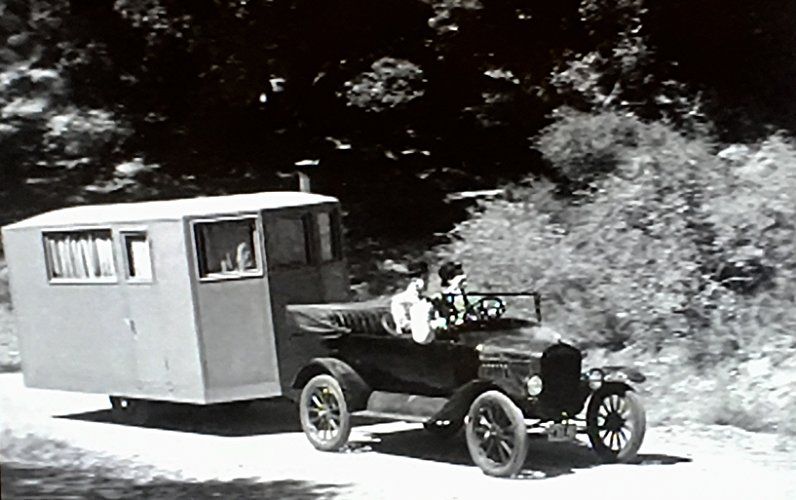Thanks for your support! If you make a purchase using our links in this article, we may make a commission. And, as an Amazon Associate, I earn from qualifying purchases. See the full disclosure here.
Updated April 13, 2024
If you’re looking to find the perfect RV with the right features, length, price, and weight, many have found that older RVs are worth buying.
Once RV manufacturers catch up from the backlog, there’s speculation that they’ll continue to build certain RVs on a custom order basis like the molded fiberglass RV companies have done for decades. Used RVs get you the RV you want, when you want it, with many benefits.
To help guide your RV shopping, we’ll show you the advantages of buying an older RV, how to spot RVs that fit your RV maintenance expectations, and how to use RV depreciation to your advantage.
Finally, we’ve put together a guide of general characteristics to help you find the best used RVs in every category to start your shopping adventure.
- How Old is Too Old for an RV?
- Do RVs or Campers Hold Their Value?
- Do RVs Have a Good Resale Value?
- Do Airstreams Increase In Value?
- Can You Finance an Old RV?
- Where Can I Find Used RV Values?
- What’s the Oldest RV I Should Buy?
- Is Buying an Old RV a Good Idea?
- Should I Buy an RV With 100,000 Miles?
- Problems With Buying a 20 or 30-Year-Old Motorhome
- Are RV Inspections Worth The Cost?
- Is It Hard To Find Parts for Older RVs and Motorhomes?
- Should I Buy an Extended Warranty for an Older RV?
- What Is the Ten-Year Rule?
- What To Look For When You’re Buying a Used Motorhome or Travel Trailer
- Best Used Teardrop Camper
- Best Used Pop-Up Camper
- Best Used Truck Camper
- Best Used Travel Trailer
- Best Used 5th Wheel
- Best Used Campervan
- Best Used Class C Motorhome
- Best Used Class A Motorhome
- Final Words About Buying Old RVs
- Related Reading:
How Old is Too Old for an RV?
Some situations determine how old is too old for an RV. If the capacity to maintain the coach is beyond your time and resources, you’ll need to find one better suited to your means.
Many of us would love to be one of the lucky 12 to have a 1939 GM Futurliner parked in our driveway, but very few can afford to pay over $4 million when one of them comes up for auction.
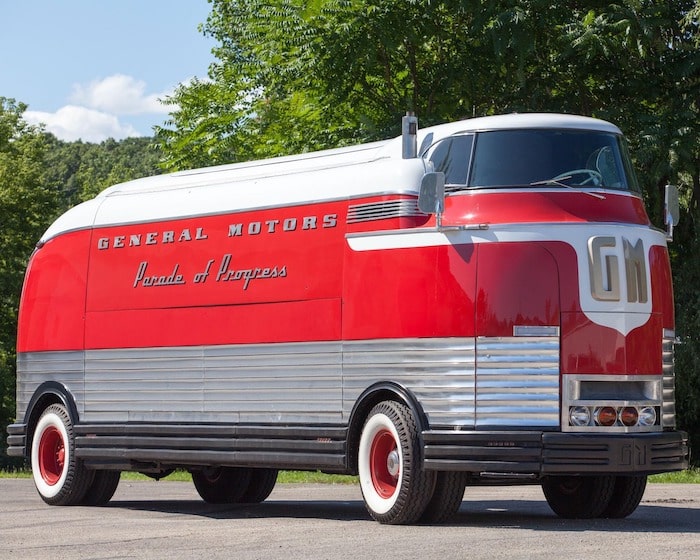
Realistically, RVs from the Antique (1910-1944) and Vintage (1945-1970) Eras take a lot of TLC. However, plenty of Classic (1971-1989), Neo-Classic (1990-2007), and Modern Era (2008-Present) motorhomes and travel trailers are still roadworthy.
The blogosphere and YouTube have become excellent how-to guide resources in recent years to help you maintain and repair RVs.
A better question to ask yourself is, what are the key indicators that make an RV a bad investment for you? Here are some big repair problems most people find too financially overwhelming or make a coach beyond repair:
- Black mold infestation
- Destroyed from fire
- Holding tank corruption
- Interior/exterior vandalism
- Massive water damage
- Nonworking engine/transmission
- Severely damaged frame
- Twisted, bent, or broken chassis
The average lifespan of an RV ranges between 20-30 years. Molded fiberglass travel trailers and fifth wheels can last much longer. From 1984-1992, a subsidiary of Uhaul, Rec-Vee World, produced molded fiberglass travel trailers for the rental equipment giant.
Today, people are buying and restoring them. The fiberglass shells are in excellent condition. Most of the restoration deals with replacing the features and cleaning them up.
Motorhomes, like all drivable vehicles, have a recommended mileage cap. Gasser RVs will last 200,000 miles and diesels average 300,000 miles. However, if you keep the engine maintained and tuned up, you could see those motors cruising the highway beyond those limits.
Do RVs or Campers Hold Their Value?
Like cars, RVs depreciate. New RVs lose 20% of their value once you complete the purchase process. The chart below shows the average depreciation of the major RV categories based on the NADA Guide and other reliable sources. For comparison, we’ll show you the average car depreciation.
| Category | 3 Years | 5 Years | 10 Years |
| Car | 58% | 49.1% | <20% |
| All RVs | 28.34% | 39.37% | 56.18% |
| Travel Trailers | 27% | 40% | 50.5% |
| Fifth Wheels | 26.8% | 45% | 71% |
| Class C Motorhomes | 25.4% | 38% | 50% |
| Class A Motorhomes | 30% | 37% | 50% |
Do RVs Have a Good Resale Value?
Some RVs have a good resale value compared to others. Age isn’t the only factor used to figure out an older RV’s actual value. Like any big purchase, there are other variables thrown into the mix.
- Brand Power: Some RV brands hold their value better based on their reputation. Manufacturers like Airstream, Coachmen, Forest River, Grand Design, and Winnebago tend to have stronger resale values.
- Damage: It’s unrealistic to find a used RV without minor scratches, but significant damage on the exterior, interior, or water damage can drop an RV’s value.
- Features and Upgrades: RVs with more upgrades tend to have a lesser resale value than those with primarily standard amenities. Those that have the baseline components attract bigger audiences because they adapt better to more lifestyles.
- Maintenance and Repair Records: In our article, How to Sell Your RV for Top Dollar, we advise sellers to keep good records of the maintenance and repairs they perform on their RV. Buyers want proof that the coach was kept up and is in the best condition. There are apps out there to help you manage this. Also, keep your RV preventive maintenance checklists filed, so they can see what you’ve done and when you did it.
- Storage Environment: How was the RV stored between vacations or during the off-season? Was it parked in an RV outdoor storage lot, under covered storage space, or at an indoor RV facility? Long-term exposure to the sun, weather, and monthly cycling of the automotive fluids can make a big difference.
Do Airstreams Increase In Value?
No, Airstreams do not increase in value. That would certainly be a remarkable feat indeed. However, Airstreams are known for depreciating at a much slower rate than most other RV brands out there. There are a few reasons behind this. Brand name alone goes a long way.
But there’s a reason the Airstream brand is elevated to the position it holds today. Over the decades of Airstream manufacturing, these travel trailers are known for their durability, iconic look, and interesting interior aesthetics that equally match the exterior.
Whether or not the Airstreams of today retain the same level of durability and longevity as those that came before is unclear. But its reputation was partially built on that long-term reliability and it still holds sway today.
Can You Finance an Old RV?
Financing an older RV works much like purchasing a secondary home. In the early Remote Period of the Modern Era (2020- present, when this article was published), banks and other lenders offered excellent rates for prime, secondary, and sub-prime borrowing candidates.
Older RVs with higher ages and mileage can get financed if you shop around. It may benefit you if you find the right lender and get a pre-approval letter from them before you walk into a dealer. Dealers partner with many different lenders, but if you have a pre-approval letter ahead of time, insist they use the one you have.
Here are some key points you need to know about RV financing. Make sure you understand everything before you sign the paperwork:
- RV lenders use the coach as collateral, so it’s a secured loan.
- The Annual Percentage Rate (APR) can be fixed or variable.
- You can’t finance the warranty or sales tax, so your down payment may include them or be a different amount you must pay in full.
- Coaches less than 10 years old, gas motorhomes under 60,000 miles, and diesel RVs below 100,000 miles can get financed but be ready for a higher down payment and an increased APR.
- Units between 10-15 years old, gassers above 60k, or diesels over 100k may be eligible for 50% financing of the total price. Anything after that, lenders won’t consider.
Each lender is unique and has different criteria. Here’s a breakdown of what’s out there for RV lending:
| LOW | HIGH | |
| Credit Score | 550 | Over 800 |
| Down Payment | 10% | 30% |
| Finance Limit | $5,000 | $2 million |
| Interest Rates | 3.5% | 12.4% |
| Loan Term | 5 years | 20 years |
Where Can I Find Used RV Values?
NADA (National Automobile Dealer’s Association), J.D. Power, and Good Sam RV Valuator are good places for finding used RV values. You can get approximate values from used online websites, so long as the sites are trustworthy and reputable.
Most of these valuator sites are very similar to those that provide car valuations. Simply enter the pertinent information of the RV (size, model, year of manufacture, etc.) and the site will provide you with the best estimate compared to similar used RVs out there.
What’s the Oldest RV I Should Buy?
The oldest RV you should buy is the one that fits your goals and maintenance resources. Many 3 to 5-year-old RVs are in excellent condition and require regular maintenance.
A good portion of 5 to 10-year-old motorhomes and travel trailers may need some work, but there could be that diamond in the rough out there that you can “hot rod” up with updated amenities and features.
Is Buying an Old RV a Good Idea?
Buying an old RV is a good idea because you can use the RV’s depreciation to save money and still have the latest technology. Also, a used RV has already gone through its shake-down period, so the previous owner has identified and resolved any upfront issues.
For example, let’s say you find a 2019 Jayco Jay Flight SLX 8 264BH in excellent condition. Some Jay Flight SLX 264BH reviews mention leaky faucets. The previous owner could’ve fixed the issue already.
When you compare the 2019 used unit to the 2022 new model, there are some changes. Yet, those changes aren’t worth the higher price. Therefore, the 2019 used model has everything you need and want.
Should I Buy an RV With 100,000 Miles?
An RV with 100,000 miles has plenty of life left in it. Most of the time, you’ll find motorhomes with 25,000 to 60,000 miles on them. In situations where you find an old RV with low mileage, you have to conclude the motorhome spent most of its life sitting idle.
If the owner didn’t properly maintain the automotive and plumbing systems, the gaskets and hoses could be defective since they dried out.
On the other hand, the gaskets should be okay if the previous owner started up the RV every month and winterized the plumbing. It’s a good idea to complete an RV inspection or have a professional RV inspector take a look, so you know what you’re buying.
Problems With Buying a 20 or 30-Year-Old Motorhome
We bought a 2001 Fleetwood Pace Arrow in 2017 to start our full-time RV lifestyle. I’m a second-generation RVer, and my wife, Marianne, has a background in property management. I have many memories of helping my father maintain and repair the family RV in the 1980s and 1990s.
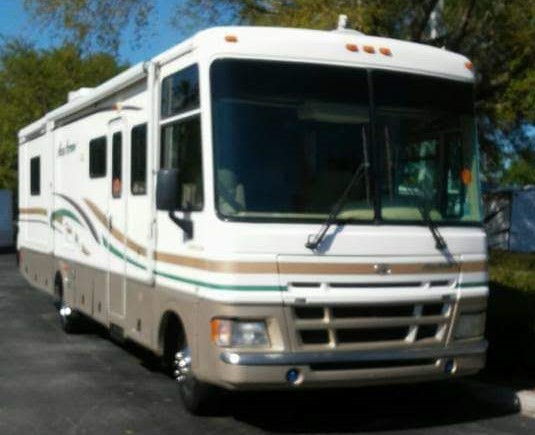
When we bought our “Big Pretty” (our motorhome’s name), we knew we had a lot of work ahead of us. The purchase price was under $30,000, but we knew we’d invest that and more into our Class A RV. What sold us on the RV was that it ran well, was camp-ready and didn’t need any immediate work.
Since I work from home, I knew I had the time to learn how to complete the various projects and Marianne’s nephew could help me. I consider the RV as a livable “hot rod” project because of the restoration and upgrades I’ll add to it. Even though Mari won’t let me hit racing speeds, how many hot rods have a heated massage chair with lumbar support?
With an RV this old, we knew that 20 years of road conditions, weather, and usage had some worn-down components. So as we rebuild The Big Pretty, the goal is to bring most of it to today’s standards or better and replace many of the features to fit our RV lifestyle. We know that due to the age of this motorhome, we’re going to be the last owners of the RV, so the resale issue isn’t a factor.
Over the past four years, we’ve completed a lot of work on their Pace Arrow. Some upgrades have been easy, like adding flat-screen LED TVs. Others involved repairs, such as replacing the fresh water tank and pump.
Our favorite was converting the front TV cabinet into a space to display the memorial urns of our dogs that have crossed the rainbow bridge. This way, they can still travel with us, have a seat of honor, and look out the windows (Nubie Du, quit barking!).
Are RV Inspections Worth The Cost?
RV inspections are more than worth the cost, in several ways. Sure, it’s hard to think of it that way since RVs are so expensive these days. Hiring an inspector only adds more money to the pile that’s already about to come out of your bank account.
Consider it money well spent. At best, it will end up saving you thousands in additional expenses. At worst, it will still probably save you enough money to offset the expense of the RV inspector. It also provides peace of mind. Peace of mind that you won’t get into an accident because of a failure on the RV at a critical juncture.
You also don’t want to lose out on the potential resale value of the RV. While you might not be keen on selling it any time soon, that day may eventually come, and if you have a lemon on your hands that you’ve been forced to spend thousands of dollars on repairing, the resale value will reflect that.
Is It Hard To Find Parts for Older RVs and Motorhomes?
Contact the RV manufacturer to start your expedition if you can’t find the part number on a sticker or in an owner’s manual. Many big names keep the blueprints, brochures, manuals, and part numbers on file in a heritage department.
Once you have the part number, you may find that the original vendor replaced the part with a new generation that works better.
Depending on the Era your RV comes from, it can be hard to find parts for older RVs. Original Antique Era parts are almost impossible to find, but Vintage Era and forward may be sitting in an RV salvage/scrap yard near you. While most people see a junkyard, the handy hot rod RVer sees a super megastore filled with possibilities.
Classic Era RVs may have some better opportunities. If you’re looking for the original Coleman Pop-Up camper parts, when Fleetwood had to trim down due to financial problems in the 1990s, they sold off all of their extra parts that are still floating around today. The various online marketplaces like Craiglist, eBay, and Amazon could be an excellent place to start.
Three of the Big 4 Dealers, Camping World, General RV, and Lazydays, may have the parts you need. For example, when Brian Newman was replacing his water tank, they had the replacement water control unit for his 20-year-old RV.
RV forums, camping clubs that focus on specific RVs or Eras, and other groups in the RV Community could point you in the right direction.
Don’t assume it will be hard until you’ve taken the first steps in the research process. If you’re thinking of buying an RV over 5-10 years old, before you get that cashier’s check, check around to see how difficult it’ll be to find replacement parts.
Should I Buy an Extended Warranty for an Older RV?
Yes – but not from a dealership! Unfortunately, your odds of suffering a major mechanical breakdown go up with every passing year. Based on RV Warranty claims records, more than 3 out of every 10 RVs will need major repairs in only their second year on the road.
This skyrockets to 8 out of 10 in their fifth year, and virtually ALL of them in their eighth year! Today’s RVs are increasingly more complex, and with more things going wrong, the need to protect your investment is more important than ever.
Our RV Warranty plans allow you to change your mind! If you want to sell your RV to a private party, you can transfer the policy to the new owner. Additionally, if you are trading in your RV, or getting out of RVing altogether, you can cancel your policy for a pro-rated refund.
We bought a warranty through Wholesale Warranties for several reasons:
- We can cancel the warranty at any time and get a pro-rated refund
- We can transfer the warranty to the new owner if we decide to sell our RV
- There are no mileage caps on our policy
- We can use repair shops all across the country
- We can use a mobile repair company right at our campsite
- The price is way better than most dealerships
- We could finance the cost of the warranty
- With parts and labor prices increasing all the time, we have peace of mind
You owe it to yourself to at least check out a warranty and get a free quote to see if it is right for you. It just takes a few minutes and you will learn a ton about protecting your investment. We only recommend products we use ourselves and we highly recommend you get a free quote from Wholesale Warranties.
What Is the Ten-Year Rule?
The Ten-Year Rule has sprung up in the last 10 years or so, and it’s controversial. Initially, high-end RV resorts would only allow coaches made within 10 years to camp on their property.
These resorts cater to multi-million dollar RVers who expect elite services, groomed landscapes, and aesthetics that come with the luxury-level prices they pay.
The rule wasn’t much of a problem until it trickled down to middle-income and value-friendly campgrounds. In some cases, campgrounds received pressure from the local or county authorities that connected RVs in disrepair to the homeless or people conducting criminal behavior (Please note: We’re only stating the facts as we understand them based on our research).
If you have an older RV that’s long in the tooth, we recommend that you call the campground directly. Take pictures of your clean coach. The manager will want to see emailed photos of your motorhome or travel trailer.
Managers make decisions on a case-by-case basis, but you have a better chance of getting in if your RV is in good repair and looks good. While you’re on the phone, you can also ask about their pet policies or other rules if you need clarity on anything else.
For more info check out our article called RV 10-Year Rule Confounds RVers.
What To Look For When You’re Buying a Used Motorhome or Travel Trailer
Now that you know the fundamentals, here are some guidelines to help you find that perfect older RV. Save the full RV inspection when you narrow your choices to your top 3 favorites. These guidelines are just for your initial “look and see.”
Regardless of category, look for significant components, shell, water damage, and interior problems. If it doesn’t feel right, there are plenty more out there. Some of these characteristics are interchangeable throughout the RV categories.
Best Used Teardrop Camper
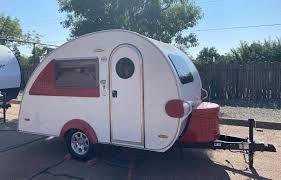
- The chassis and hitch have surface rust, but it doesn’t go through the steel.
- There isn’t any warping in the frame or shell, and the door(s) close and fit into their frame well.
- The axle doesn’t bow due to overweight usage.
- There isn’t any exposed wiring and all of the components work.
- The interior doesn’t have any significant concerns.
Best Used Pop-Up Camper
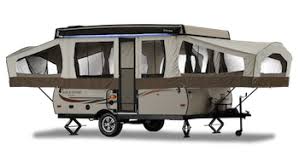
- (Softshell) The canvas or vinyl is original, doesn’t have any tears, and has no mold or mildew growth.
- (Softshell) The beds and slideout (if applicable) slide out well.
- (Hardshell) The panels and dormers are in good shape.
- The camper expands up and collapses down without any significant problems. The mechanics and electronics work well.
- The trailer section’s bays, bumper, and paneling look good.
- On the test drive, the brakes work, and the wheels spin well.
Best Used Truck Camper
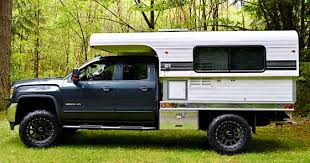
- (Pop-Up) The camper’s roof expands without issue, and there aren’t any tears in the vinyl.
- All the components work.
- All the straps that come with the RV are in good shape and don’t need replacement.
- The interior is clean and in good shape.
- (Permanent Mounted) The connected pickup truck runs well, and the previous owner kept up with the maintenance.
Best Used Travel Trailer
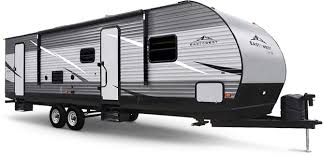
- The roof, end caps, and sidewalls are in good condition.
- All of the external bays and hatches close and lock.
- The interior and the components are in good shape and work well.
- The axles don’t bow due to overweight usage.
- The current owner shows you a clean original title that isn’t bank-owned or has any liens against it.
Best Used 5th Wheel
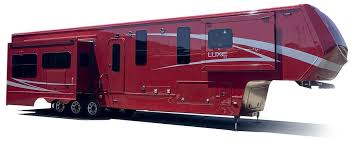
- Both the exterior and interior components and panels are original and work well.
- The RV has a clean title, and all the paperwork is present.
- The kingpin is in good condition.
- The slide-outs expand and contract without hesitation.
- (Toy Hauler) The ramp cables hold the weight, and the garage tie-down connection points aren’t bent.
Best Used Campervan
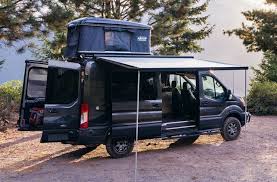
- (DIY Stealth Campervan) The construction of the interior walls, insulation, and features show high-quality work.
- All of the external and internal components work.
- The van’s mileage is within your comfort level (these engines don’t have the bigger motorhomes’ longevity).
- (Pop-Tops) The roof loft vinyl is in good condition, and the mechanisms work.
- None of the holding tanks leak.
Best Used Class C Motorhome
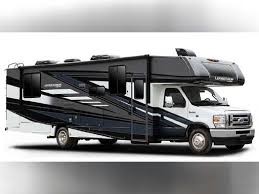
- There isn’t any damage to the loft exterior or the rear of the coach.
- The owner has records of the maintenance and repairs conducted.
- Everything works, and you have the manuals for the current features.
- The slideouts expand and pull in without a problem.
- The engine and generator start well.
Best Used Class A Motorhome
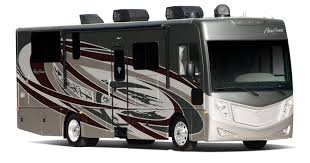
- All of the components work, and the panels are in good shape.
- Both the engine and generator start well.
- The solar panel system controller (if applicable) shows healthy power efficiency.
- There isn’t any evidence of water, mold, mildew, or fungal decay.
- The tires are in good shape, the suspension looks good, and the axles are straight.
Final Words About Buying Old RVs
Now that you’ve seen a lot of RVs in the category you want, it’s time to narrow them down to your top three favorites. Go to the RVBlogger Website to learn more about used RVs and determine what features are most important to you. You can also watch the many YouTube videos we post every week to explore RVs by topic to determine if there’s a floor plan or feature you need to have. You can find us on Instagram too.
Need to talk it over with some like-minded people like you? Start a discussion with the thousands of RVBlogger friends on our Facebook Group, RV Camping for Newbies, to see what they recommend.
Don’t forget to sign up for your FREE digital copy of RV Camping Magazine. Each month we feature articles from guest writers on the best topics. You’ll learn about famous RV Influencers, great camping destinations, remodeling ideas, maintenance tips from the National RV Training Academy, the newest technology, and what’s trending in the RV Community.
So, as Mike and Susan say: make sure you leave your campsite better than you found it, thanks for reading, and we’ll see you next time!
Related Reading:
– 10 Best Questions to Ask When Buying a Used Camper
– How to Sell Your RV for Top Dollar
– Is an RV Inspection Worth the Cost?
– Is There a Kelley Blue Book for RVs and Campers?
Brian Newman – Author and Full Time RVer
Although he’s from Motown, Brian Newman is a legacy RVer that grew up on I-75. He, and his wife have enjoyed the full-time RV lifestyle since 2017.
Like John Madden, he hasn’t “worked” in years because he gets to write about his passion. When he’s not working, he supports his daughter’s dog rescue efforts and disability causes.


